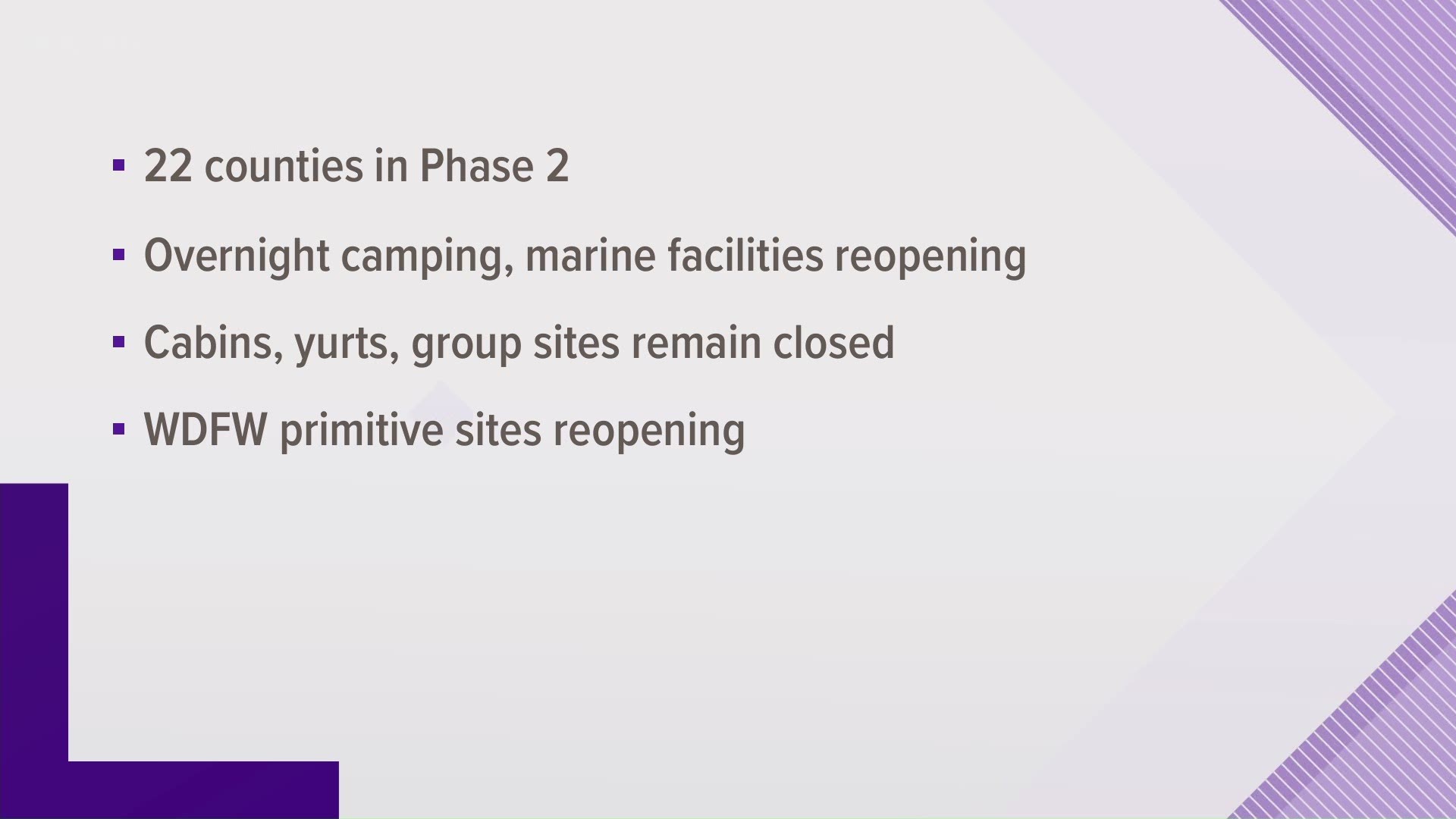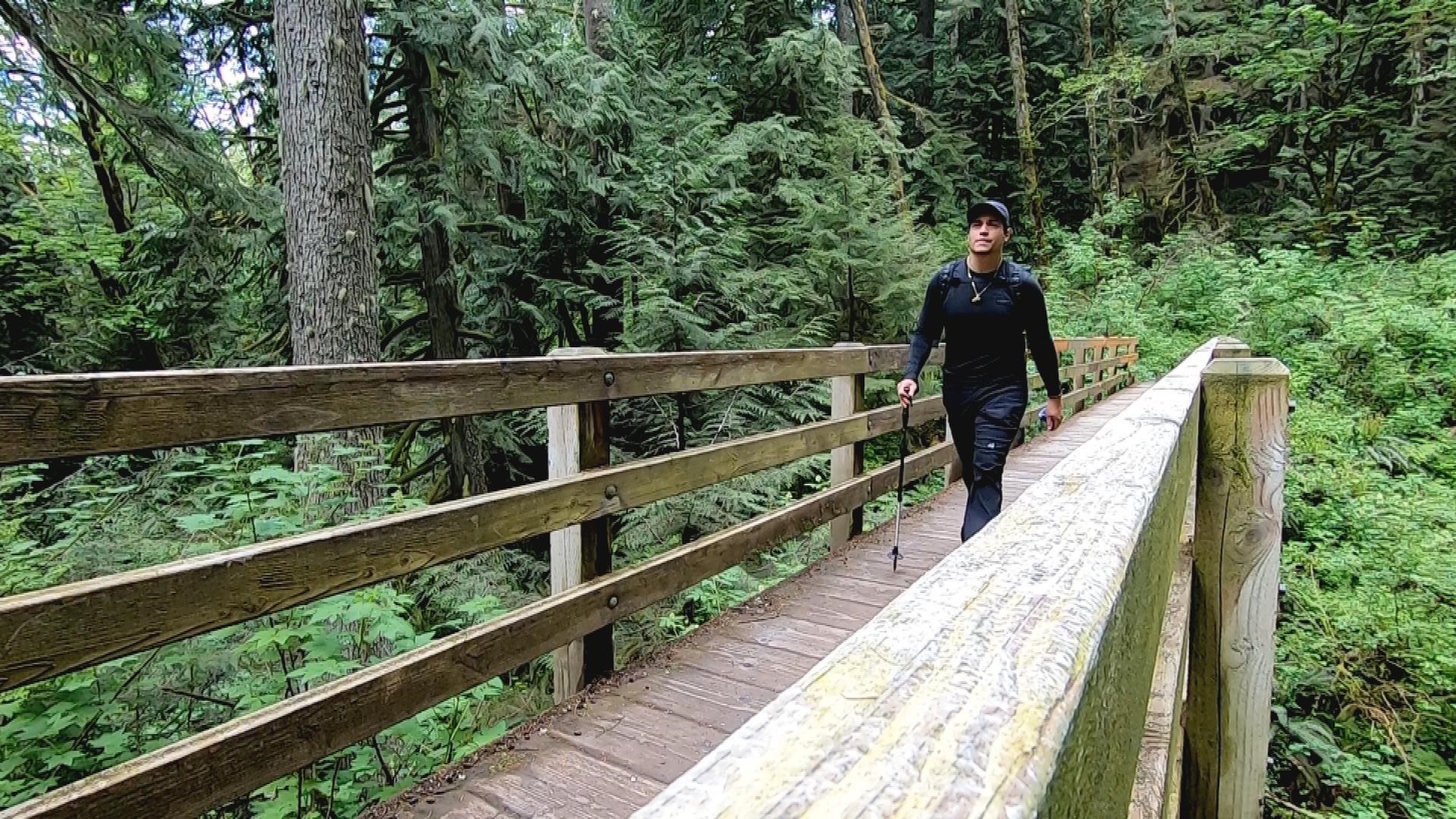Camping in 22 Washington state counties will begin to reopen on June 1.
The counties are all actively in Phase 2 of the state's four-phase reopening plan.
For state parks, the reopening applies to campgrounds and marine facilities. A list of open campgrounds can be found here. Cabins, yurts, and other overnight accommodations including group campsites will remain closed.
Primitive campsites on WDFW lands will reopen, along with dispersed camping in wildlife areas for counties that have approved camping. Find a full list of those sites here.
Additionally, most state DNR-managed sites will reopen on a rolling bases. Whether or not a campsite opens on DNR land depends on location and maintenance needs. Find a list of DNR day-use sites and campsites here.
List of counties opening up to overnight camping:
- Adams
- Asotin
- Columbia
- Cowlitz
- Ferry
- Garfield
- Grant
- Grays Harbor
- Kitsap
- Kittitas
- Lewis
- Lincoln
- Mason
- Pacific (Parks – 50% capacity DNR – closed)
- Pend Oreille
- Skamania
- Spokane
- Stevens
- Thurston
- Wahkiakum
- Walla Walla
- Whitman
To help minimize staff and visitor interactions, officials recommend the following guidelines when camping this summer:
- Know before you go – Check to see if your destination is open for camping.
- Stay local – Choose destinations close to home. This will reduce the need to stop along the way.
- Follow the rules – Rule enforcement puts visitors and staff at risk. Please follow all rules to reduce the need for interaction with rangers and other park staff. Never leave a campfire unattended.
- Come prepared – Bring all the supplies you need – including firewood – to reduce the need to stop along the way. Campsites may not have running water available so always plan to be self-sufficient and have all the items you need with you to take care of your personal hygiene needs.
- Keep groups small – limit the number of people in your party to five, unless you’re all within the same household.


